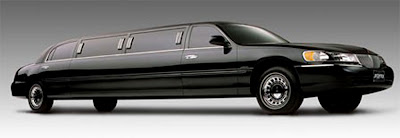
As so often happens, a comment by Gail set me to thinking about the nature of luxury, and whether it is a basic human need. I suppose it all depends on how you define “luxury”, but it seems to me that humans do instinctively need luxury in some form in order to lead a physically and mentally healthy life.
If luxury is defined as something inessential but enjoyable, then almost anything in our contemporary environment could be considered a luxury. We could certainly survive without our electronic gadgets, although I sometimes question the extent to which they are enjoyable enough to be called “luxuries”. We could survive without 95% of our clothing, increasing to 100% in summer or a tropical environment. We could survive without hot showers, shampoo, or even running water. Plenty of people do. We could survive without music, literature, philosophy, beautiful design, and perfume, although this would reduce us to the most abject level of Puritanism. Most of the things that fill our lives would be considered luxuries in some context.
In the animal kingdom, you see many examples of what could be considered desire for luxury. Birds build “luxurious” nests to make their lives more comfortable, lining them with soft materials and sometimes decorating them with shiny things. Dogs roll in materials with scents that they find pleasant. Chimps like to get a nice, relaxing grooming treatment from one of their buddies.
 I can imagine that humans have been finding ways to devise luxuries for as long as the species has existed, making unnecessary but pleasant vocalizations and beating out pleasant rhythms on found objects, getting a de-lousing or massage from a friend, rubbing themselves with aromatic leaves, and choosing the firewood that smells best when burned. Come to think of it, fire is itself a luxury. We don’t have to be warm, clean, and well-fed to survive, but it makes us a lot healthier in every respect and helps ensure the survival of the species. Evolution has built into our natures a need for comfort and pleasure. Why fight it?
I can imagine that humans have been finding ways to devise luxuries for as long as the species has existed, making unnecessary but pleasant vocalizations and beating out pleasant rhythms on found objects, getting a de-lousing or massage from a friend, rubbing themselves with aromatic leaves, and choosing the firewood that smells best when burned. Come to think of it, fire is itself a luxury. We don’t have to be warm, clean, and well-fed to survive, but it makes us a lot healthier in every respect and helps ensure the survival of the species. Evolution has built into our natures a need for comfort and pleasure. Why fight it?  Of course, once the basic luxuries are in place and we no longer have to worry about where our next meal is coming from or whether we’re going to freeze in the winter, the search for luxury still goes on, eventually culminating in an economy where “luxury” is decoupled from comfort or pleasure and associated with high cost or exclusivity. I think it’s worthwhile to step back sometimes and think about what truly gives us pleasure and what simply causes our hunter-gatherer brains to experience a dopamine rush when the pursued object (or a facsimile of it) is obtained or displayed, even if it’s useless to us or requires more outlay of resources and/or maintenance than it gives back in pleasure.
Of course, once the basic luxuries are in place and we no longer have to worry about where our next meal is coming from or whether we’re going to freeze in the winter, the search for luxury still goes on, eventually culminating in an economy where “luxury” is decoupled from comfort or pleasure and associated with high cost or exclusivity. I think it’s worthwhile to step back sometimes and think about what truly gives us pleasure and what simply causes our hunter-gatherer brains to experience a dopamine rush when the pursued object (or a facsimile of it) is obtained or displayed, even if it’s useless to us or requires more outlay of resources and/or maintenance than it gives back in pleasure. The start of a new year is a good time to think about where to draw the line between real luxuries (maybe some good perfume!) and artificially created desires for “luxury” items (a ride in this ridiculous looking vehicle?).

["luxury" item photos from retailers' advertisements; idealized "caveman" drawing by Margaret McIntyre, around 1920]




Hi Ellen,
ReplyDeleteWhen I made the comment you are referring to I was thinking about what defined luxury for me and what "necessity". Since my business is music I have been told on more than one occasion (believe or not) that what I do cannot be considered a necessary part of life. It IS a necessary part of my life, however, and not just from an economic standpoint. I have found that without an outlet for self expression my physical system turns in on itself and I become sick. Creating and enjoying the arts, including, of course, the 8th art, is not a luxury for me but a physical and psychological necessity. It is a sort of food for me, as I imagine it is for most people. And, just like food, or any other good thing, balanced and considered consumption (as you suggest above) is the key to the healthy creation and enjoyment of beauty and comfort.
Gail
Gail, that was exactly the point I was trying to make - that self-expression is not a "luxury" in the sense that some highly advertised, expensive brand of goods is. In fact, there's no question that an outlet for self-expression is an absolute necessity for physical and psychological health, and that it's deeply embedded in our nature. I am 100% convinced that blocking such expression leads to disease. It is unfortunate that many people consider self-actualization a "luxury".
ReplyDeleteIt seems to me that self-expression can occur through either creation or consumption of what we personally find beautiful and moving (making our own music or listening to music we love), but I've noticed that some people who consume so-called "luxury" goods (including the symphony, the opera, an expensive rock concert, meals at the most expensive and exclusive restaurants) seem to engage in these activities without the facets of self-expression and true enjoyment that would make them worthwhile experiences.
I'm trying to be more aware of the issue of "considered consumption" myself and rid my life of stuff I don't find truly contributing to my enjoyment and self-expression, freeing up more time, space, and resources for the things that contribute the most. It's not always an easy task.